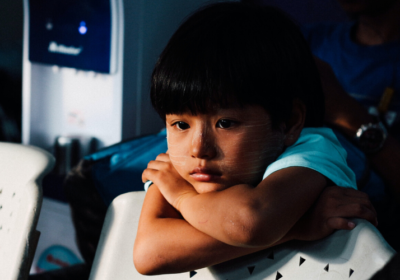First let’s define the different types of consequences
Natural Consequences – those that happen naturally as the result of a behavior or a lack of executing a behavior. Examples of natural consequences are forgetting to feed the fish and the fish dies, not brushing your teeth and getting cavities, or being a bad sport and not getting invited to participate the next time.
Imposed Consequences – are those that caretakers impose as a result of a behavior or lack of executing a desired behavior. Examples of imposed consequences are not doing homework – therefore missing recess, not cleaning your room – therefore no TV time, or hitting your sister- therefore being sent to your room.
Children who are not from “hard places” can tolerate and even learn from imposed and natural consequences. Children who are from “hard places” often cannot tolerate the stress of imposed consequences and even need immense support while experiencing an unavoidable natural consequence. When a child is experiencing stress or anxiety, he or she cannot learn. Consequences for children from “hard places” cause them to experience so much stress that it triggers their alarm system.
Once the alarm system is triggered, a person has very limited options and is automatically responding. A consequence that is meant to teach the child a new behavior all of a sudden triggers the child to fight, freeze or flee. He or she is no longer learning. If we want to be effective, then we need to approach discipline differently.
Consequences also create incredible stress for parents. I have had parents come in groaning that they need a spreadsheet to keep track of the consequences they have given their child. I have been in that place as a parent.
Can we change behaviors without consequences? Absolutely, but the focus has to shift to spending a greater amount of time connecting with your child rather than correcting your child. This means connecting even through the effects of natural consequences.
For example, one common mistake I made over and over again was to punish my child after he had already been punished for an infraction at school. He would come home and spend time in his room, doing chores, or writing apology notes. The consequences were not harsh, and by normal parenting standards I was doing the right thing. However, for my child it was not the right thing.
I can remember him getting off the school bus with his little jaw tense in preparation of me opening his folder with teacher notes inside. He anticipated the consequences and worst of all my displeasure and the feeling that he could not be successful in school. Before I even opened his folder, the lies would start pouring out of his mouth because of him feeling pressured and full of anxiety.
After being professionally trained in TBRI (Trust-Based Relational Intervention)*, I realized that he had no advocates in his life. Because of the parental pressures to make him behave, the stance I took with him most of the time was adversarial. The biggest changes started to happen when I decided to advocate for him, no matter what his behavior was like, and remove the consequences.
A year later, he was still getting in trouble and was being sent to the office multiple times a day. The change that started to occur is that he began to trust that when I came to school, it was to protect him, to advocate for him and to encourage him. Instead of tensing his jaw and defending himself aggressively, he would burst into tears. One vivid memory I have is when I was called to come into the school to talk to him. I don’t remember what he had done, but I remember his little face was buried in the sofa as the counselor was telling him that he was being disrespectful for not looking at her. I asked her to leave us alone for a few moments. He climbed in my lap, put his hands on each side of my face, and with tears running down his face he said, “Mommy you are the only one that knows I am good for lots of things; everyone else thinks I am just good for trouble.” That is what being your child’s advocate creates, a connection that starts to change behaviors.
Today, almost 4 years since starting to shift the way we parented, my son is thriving. He needed an advocate more than he needed more consequences. I stopped opening those teacher folders, and he started telling me the truth. I would hold him and tell him I was so sorry he had such a hard day. This year he has not been in the office at all, not once. These changes did not happen overnight.
*Trust-Based Relational Intervention was created by Dr. Karyn Purvis and Dr. David Cross, authors of The Connected Child.


